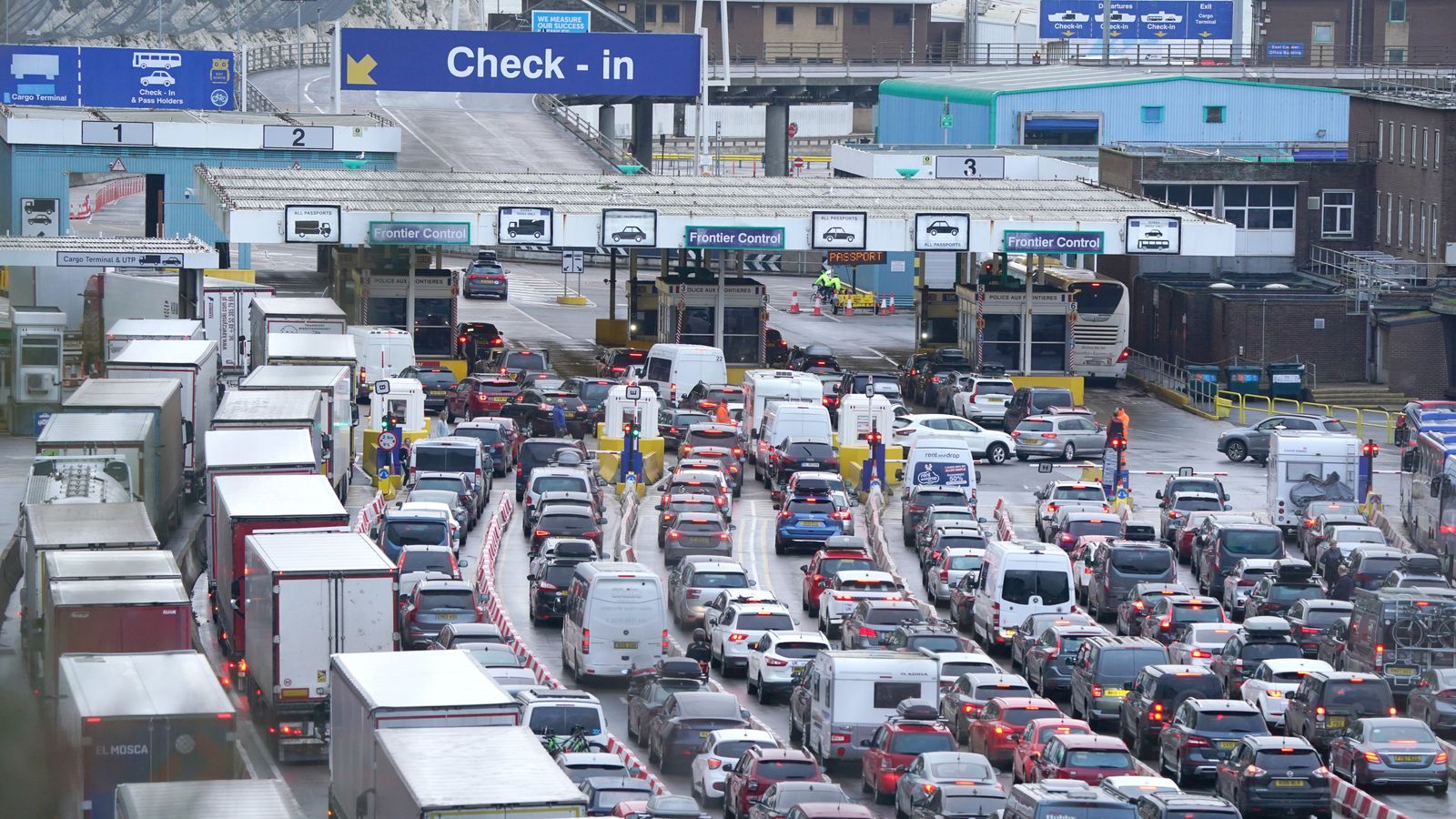Easter delays likely for Dover coach passengers as post-Brexit checks raise ‘real risks’ of future border complications

Coach travellers will be asked to delay Channel crossings over Easter as ferry companies and the Port of Dover attempt to avoid a repeat of the shambolic delays that blighted the start of the school holidays last weekend.
Thousands of holidaymakers, many of them children on school trips, faced delays of up to 18 hours as a combination of new border controls and bad weather on the busiest weekend of coach travel since Brexit overwhelmed Britain’s busiest port.
Coach traffic is expected to be around a third lower over the Easter weekend, but to try to avoid congestion Dover port authorities have asked ferry operators to spread coach bookings on the Good Friday peak across three days.
This will inevitably lead to some passengers having to delay departures and curtail holidays – and may disrupt onward bookings.
But while authorities hope to avoid a repeat of long waits at Dover in the short term, the government has announced its commitment to post-Brexit checks – after delaying for years – which could add to complications at the port in future.
Read more:
The details of new post-Brexit border checks
Brexit’s role in recent long waits
The post-Brexit requirement for all travellers to have their passports checked and stamped by French border officials was a key factor in last weekend’s delays, requiring every coach passenger to disembark.
The Port of Dover says it has been assured that the French border authorities, Police aux Frontieres (PAF), “are providing a full complement of officials to process outbound travellers despite lower coach volumes”.
Advertisement
The Port is also installing temporary facilities to cope with passengers in the event of long delays.
Car and foot passengers have also been advised to not arrive early for crossings in order to ease the pressure on the notoriously narrow and congested port area.
In a statement, the Port of Dover said: “All Port of Dover stakeholders are acutely aware that last weekend was a horrible situation for many travellers, including the elderly and schoolchildren.
“It is the top priority of all parties to ensure a better experience for travellers this weekend. These additional measures are intended to significantly improve traffic throughout and give travellers a better start to their holidays.”
Please use Chrome browser for a more accessible video player
1:15
Former Justice Secretary: ‘No doubt Brexit contributed’ to chaos
New customs controls could add to border complications
The measures to avoid outgoing congestion come as the government announced its intention to finally introduce post-Brexit border controls on imports to the UK from Europe, many of which pass through Dover.
These customs controls have been delayed by almost three years to avoid disruption to supply chains and overwhelming ports, primarily Dover.
This has meant that British exporters have faced full customs controls on goods going to the EU while their European peers have had no additional barriers to exporting to the UK.
In a new border strategy, the government says it is committed to introducing the first wave of controls in October, with many checks being carried out at inland border control posts to avoid congestion at ports.
Controls for some goods will be effectively scrapped as part of a “streamlining” process, but food and animal products will still require safety checks, a move that could cause disruption to dairy and meat imports.
When similar processes were introduced for UK exports in January 2021 it caused volumes to collapse.
Read more:
Downing Street admits Brexit role in chaos
Critical incident at Dover stood down
Post-Brexit checks don’t solve ‘real risks’ to food supply
There are also concerns about the impact on “groupage” – lorries carrying multiple loads from small exporters – which are still expected to be impacted.
The Cold Chain Federation, which represents the refrigerated haulage trade, said the new system would increase the risk of food shortages and increase food inflation.
“Six years since the UK started the process of leaving the EU and after two previous postponements to bringing in the necessary food controls, the proposals today are a massive disappointment.
“They solve none of the real risks facing our post-Brexit food supply chains and will exacerbate shortages on the shelf and food inflation,” said chief executive Shane Brennan.
“When plans to bring in controls starting from July 2022 were cancelled, we were promised a fundamentally new approach to how the UK would manage its border, that is not what this proposal is. None of the fundamental problems have been solved and business have nowhere near enough time to prepare.”
But ministers say that introducing a “more targeted, risk-based system… moves us closer to our goal of creating the most effective border in the world”.